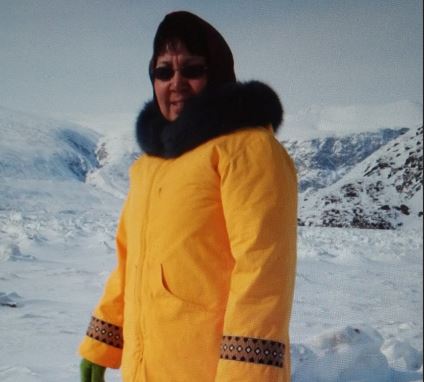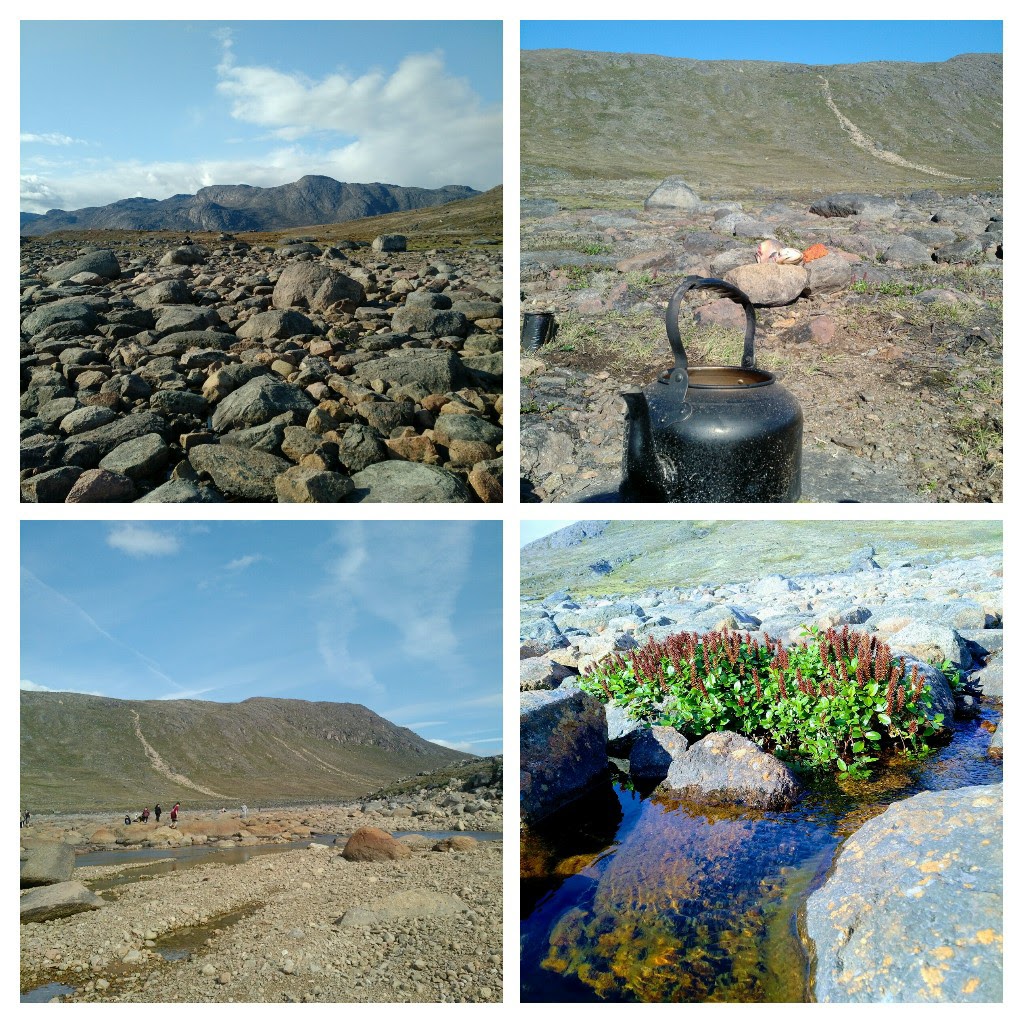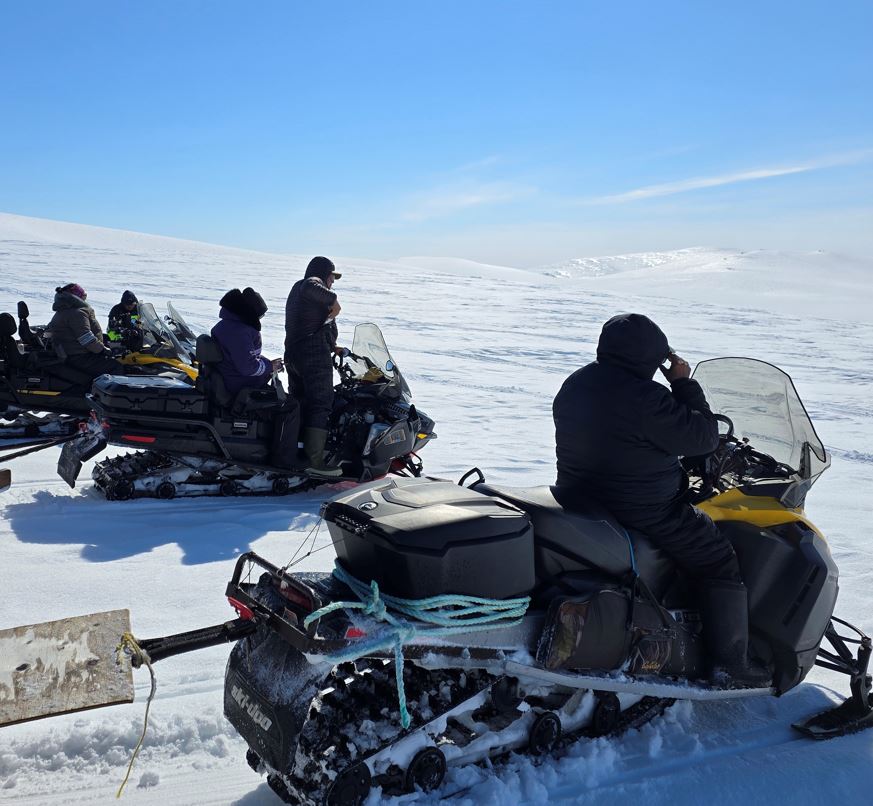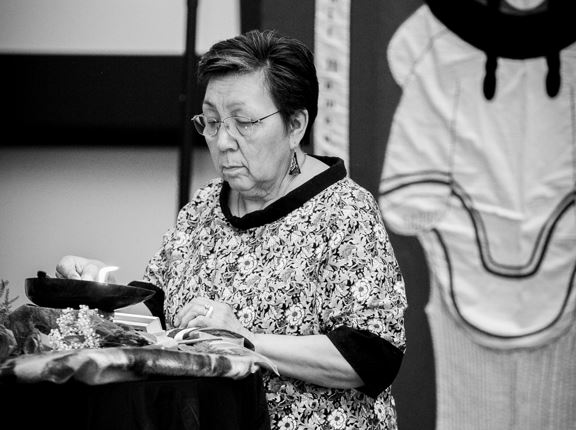Our Leaders
– Looee Mike –
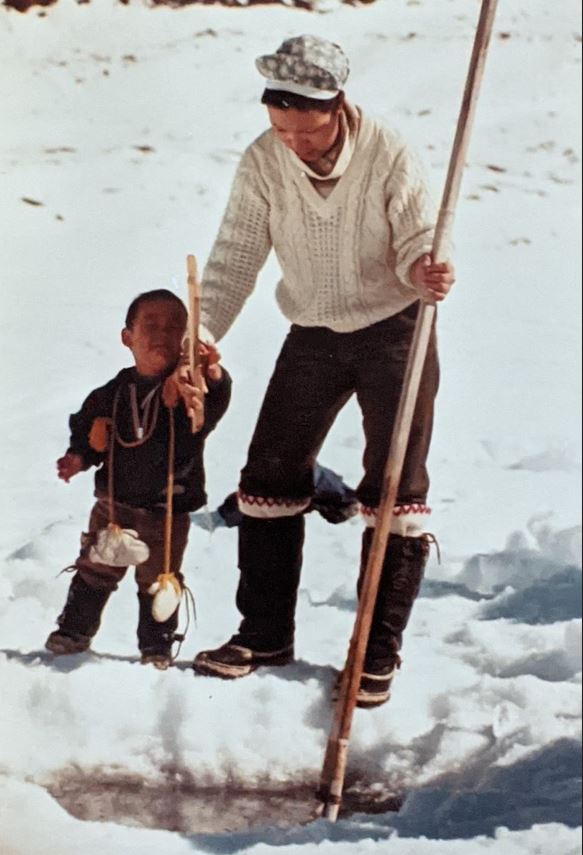
Looee Mike
Vice Chair of the Board, Pauktuutit Inuit Women of Canada
Representative for Qikiqtani South
Early Life and Relocation
Looee Mike was born about 60 miles from Pangnirtung in Nunataaq (Nunatak), an island in Shark Fjord, northwest of Cumberland Sound in what is now Nunavut. She lived there until the age of five and experienced a traditional lifestyle that revolved around the land, with seasonal dwellings where her family hunted and gathered supplies like caribou for clothing and heather for bedding, insulation, and firewood. However, life changed suddenly when the federal government relocated her family to Pangnirtung.
“One day, while we were playing outside our qarmaq (hut), a plane—something I had never seen before—landed. It sounded like a giant bee. Two men with yellow stripes on their pants told us we were leaving,” Looee recalls. The next thing she knew, her family was taken on that plane and dropped off in Pangnirtung with nothing—no home, no belongings, just the clothes they were wearing. Her father had gone out hunting that day and returned home to find his family was gone. “He had no clue where everybody went,” she recalls. He came to Pangnirtung weeks later to look for supplies and discovered his family living on the floor of a house in the community.
Adjusting to a new way of life
This abrupt relocation marked the beginning of a challenging adjustment for Looee and her family. They soon faced the harsh realities of their new environment. “They gave us prefabricated houses, but they were poorly insulated, and we found them unbearably cold. The RCMP killed our sled dogs, leaving us without transportation to hunt. We didn’t understand money or how to buy food,” she continues. The disruption of traditional practices was difficult, but it was during this time that she witnessed the community’s strength. Her father, a dedicated hunter, helped form the first Hamlet Council, eventually becoming the first mayor. “Maybe it felt more Inuit-focused back then because we were carving our own paths, making our own decisions, and having control over what we did. We were so involved in everything. Now, it feels so political—too many outside opinions. it’s completely different.”
Despite these early struggles, Looee pursued her education. School in Pangnirtung began at age eight, but for high school, she had to go to Iqaluit to complete her studies. “It was difficult to not see my family for three years, but I focused on supporting them when I returned,” she explains. “My family lived in a small house with 12 people—five boys, five girls, and my parents. It was crowded, but we managed,” she reflects.
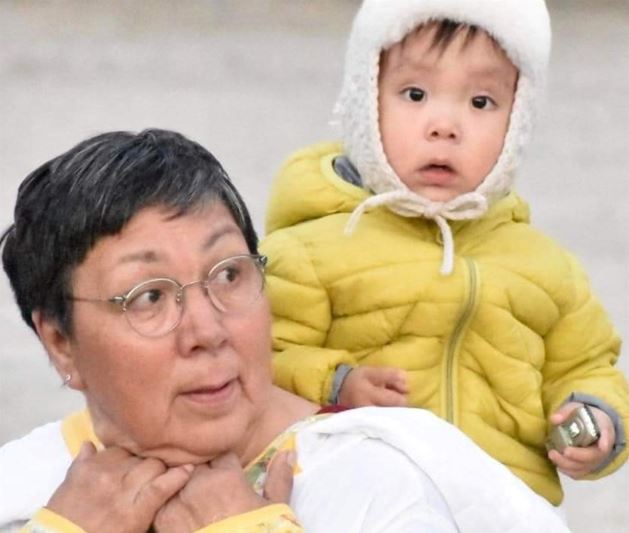
Commitment to Women and Children
After returning from high school, Looee’s commitment to her community and desire to support women and children was re-ignited. Back home, she noticed many children running around while their mothers had to work, but there were few options for childcare. Recognizing this need, she did the studies needed and started two daycares, which continue to operate today. “My passion for supporting women and children has always been strong. I loved babies, and I found a way to turn that love into work that makes a difference,” she explains. “They’re operated by unilingual Inuit women, with programming done in Inuktut, while the administration is in English to meet government requirements.”
Looee’s advocacy for women’s rights deepened as she joined Pangnirtung’s committee to stop violence against women. “It was through that committee that I really learned about the rights Inuit women have,” she shares. She recalls participating in advocacy urging the government to hold husbands accountable for domestic violence. “At that time, for some reason, men often weren’t held accountable when the victim was their wife, even though many women were suffering the worst violence—both physical and verbal—at the hands of their husbands,” she explains. Their efforts resulted in the creation of a law that allows wives and girlfriends to charge their partners with violence.
Healing Through Faith
Driven by a desire to heal from her own childhood trauma, Looee found strength in faith. “Trauma shaped my childhood—I was just surviving, not living. But I always remembered my grandmother’s teachings. She used to tell me, ‘When bad things happen to you, don’t dwell on the past. Rise up!’ Her words stayed with me,” she reflects. “Rising up requires managing so many things: emotions, heart, physical, and Spirit.” This faith inspired her to become a minister, and in 1989, she made history by becoming the first female Inuk ordained minister.
The path wasn’t easy, but her calling was undeniable. “I kept thinking, ‘I’m a woman; this is a man’s world. No one will accept me.’ But the calling was too strong to ignore,” she shares. Looee trained for four years with the Diocese of the Arctic “I was the only one put on a one-year trial—none of the men had to go through that. My pay was half of what they received,” she recalls. Yet, she was undeterred. “I told myself, ‘It doesn’t matter. If it doesn’t work, at least I tried.’” Her determination led her to challenge the Diocese and even appeal to the Anglican Church in England. “I told them, ‘Your Queen is a woman. She would understand.’ That was my last resort, but it worked. I was granted equal recognition,” she says with pride.
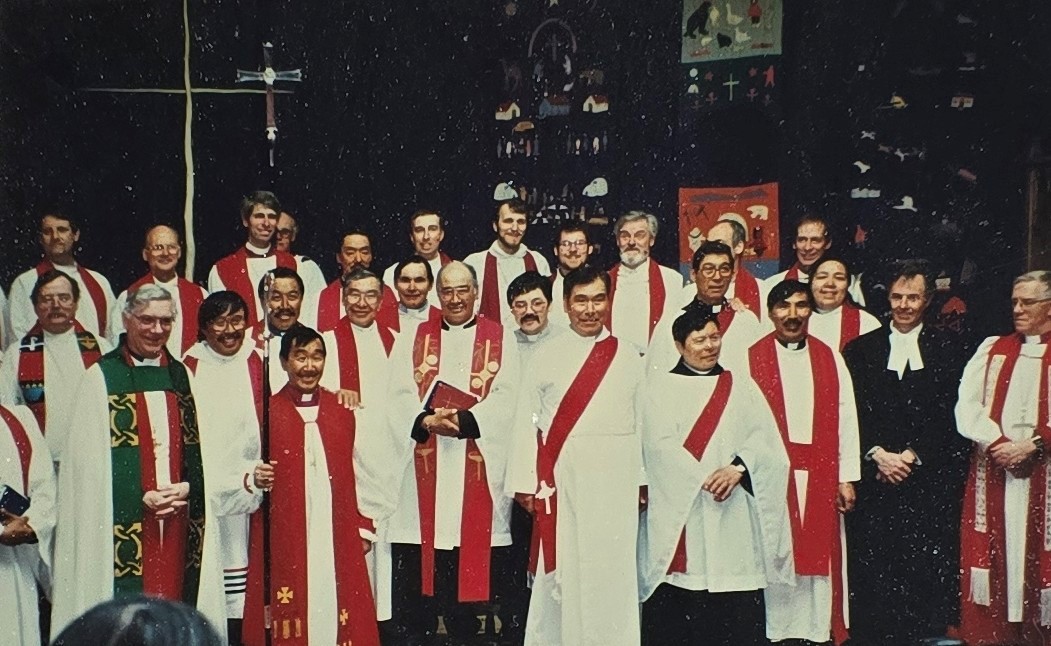
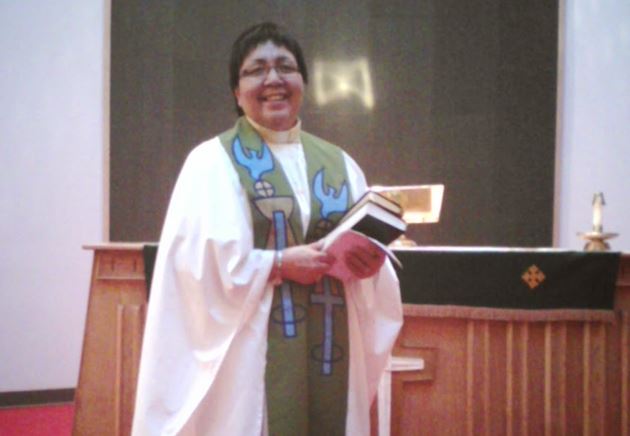
Joining Pauktuutit Inuit Women of Canada
Joining Pauktuutit Inuit Women of Canada was a natural progression for Looee, connecting her long-standing commitment to advocating for women’s rights with the organization’s mission. “It took me 30 years to join, but it felt like a full-circle moment when I finally did,” she says. Looee has deep-rooted ties to Pauktuutit, recalling how she used to babysit the children of its early founders during their meetings. She believes in the importance of Pauktuutit’s role in the community and hopes her work will inspire the next generation of Inuit women to see it as a platform for leadership and change. “Pauktuutit is there, not as some distant office, but as a group that listens, cares, and takes action,” she emphasizes.
Reflection on Her Journey
In her personal life, Looee finds joy and solace in the land and nature. “When things are hard, I turn to the land. I sew, I walk up the mountains, I slide down with the kids, and I spend time with my therapy dogs,” she shares. Her dogs, which she raised after experiencing the trauma of losing her sled dogs, have provided comfort and healing throughout her life.
Reflecting on her journey, Looee identifies her greatest achievement as staying grounded despite the challenges imposed by forced relocations and cultural disruption. “We were made to grow and live according to someone else’s decisions—a lifestyle foreign to us, introducing what I call a ‘slave mentality,’” she explains. Yet, she has always followed her path. “There’s always a bigger story in it all. For me, faith has been my guide. Even if someone doesn’t believe in God, having faith in yourself and in something greater can bring peace, strength, and insight to life. It’s not about religion; it’s about having faith and what it stirs within you. That’s my story.”
Looee Mike’s personal experiences inform her work with Pauktuutit, where she strives to support and empower others.
“For me, faith has been my guide. Even if someone doesn’t believe in God, having faith in yourself and in something greater can bring peace, strength, and insight to life… That’s my story.”
